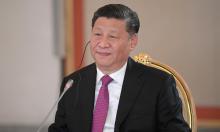Venezuela moves toward Mercosur
 The South American country is the only member of the Andean Community not invited to negotiate a free-trade deal with the United States. President Chavez has already expressed his intention to join Mercosur, the trade block formed by Brazil, Argentina, Uruguay and Paraguay.
The South American country is the only member of the Andean Community not invited to negotiate a free-trade deal with the United States. President Chavez has already expressed his intention to join Mercosur, the trade block formed by Brazil, Argentina, Uruguay and Paraguay.

After a new failure in speeding up the creation of a Free Trade Area of the Americas (FTAA) in Miami last week, new political and economical alliances arise in the Latin American scenario. The United States have changed their strategy and now look to negotiate separately with each of the trade blocks or individual states in the hemisphere, to wrap up as much consensus as possible, looking forward to 2005 deadline to close the agreement.
With the above in mind, US negotiators have launched two separate talks within South America: the first one, with the Andean Community (Bolivia, Peru, Ecuador and Colombia), and the second one with Mercosur block (Argentina, Brazil, Paraguay and Uruguay). Washington has already signed a separate free trade deal with Chile, but now dismisses talks with Venezuela, world's fourth largest oil exporter, and member of the Andean countries.
However, the Venezuelan government seems unbothered by being the only Andean country not invited to begin free-trade negotiations with the United States at the Free Trade Area of the Americas ministerial meeting in Miami. In fact, Venezuelan Trade Minister, Wilmar Castro said the U.S. strategy of bilateral negotiations could threaten a hemisphere-wide pact, as declared to the press: "It's possible other countries in the continent are more distressed about reaching a free-trade agreement.''
Moreover, president Chбvez, himself, reiterated its position against the deal. He said last week: "The FTAA is a colonial project that seeks to impose itself over the constitution of every sovereign nation.'' Castro also said Venezuelan President Hugo Chбvez is not against an FTAA but warned that the present U.S. negotiating strategy could frustrate a hemisphere-wide free-trade agreement. Venezuelan government's declarations came shortly after Mercosur partners said they would push forward free trade talks with the Andean Community, but could eventually wave the inclusion of Venezuela into the block led by Brazil.
In April, President Chavez told the press that he was considering being a formal member of Mercosur: "I have already talked about this before: now more than never Venezuela aims to be part of the Mercosur", had said Chavez during his weekly TV program named "Alo Presidente". Chavez had also said that he shared Brazil and Argentina's will to restructure Mercosur, as went further when announced that Venezuela was ready to help to reach such objective.
"We have to give Mercosur a political dimension, not only economical, to make it the framework of South America's political union", said Chavez at that time. According to the Venezuela's President, a powerful South America could contribute to world's balance.
A potential union between Venezuela and Mercosur could be of geopolitical interest for the world. Venezuela is the world's fourth largest oil producer; at the same time, Brazil is the world's largest offshore oil producer and both countries hold State owned crude monopolies. Therefore, the oil production, pumping, exportation and reserves are controlled by the State.
Hernan Etchaleco
Subscribe to Pravda.Ru Telegram channel, Facebook, RSS!


